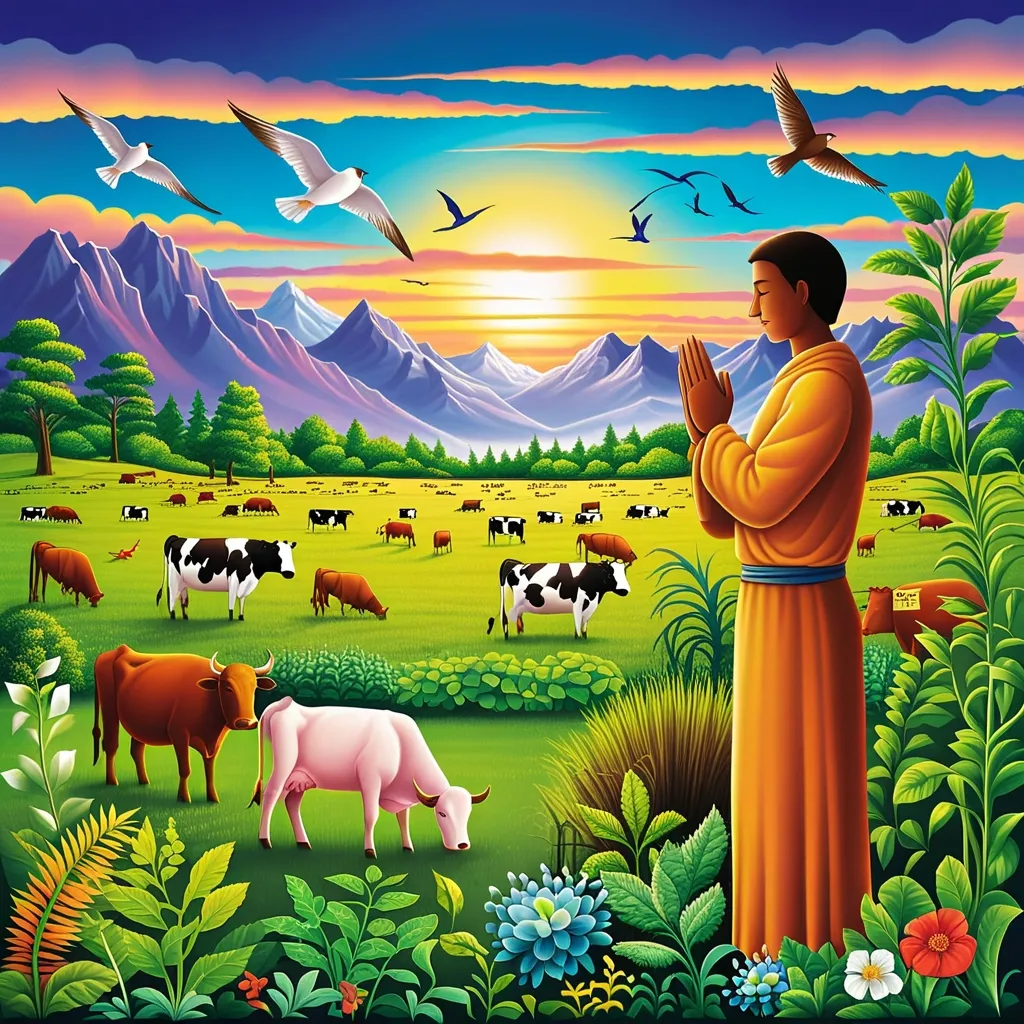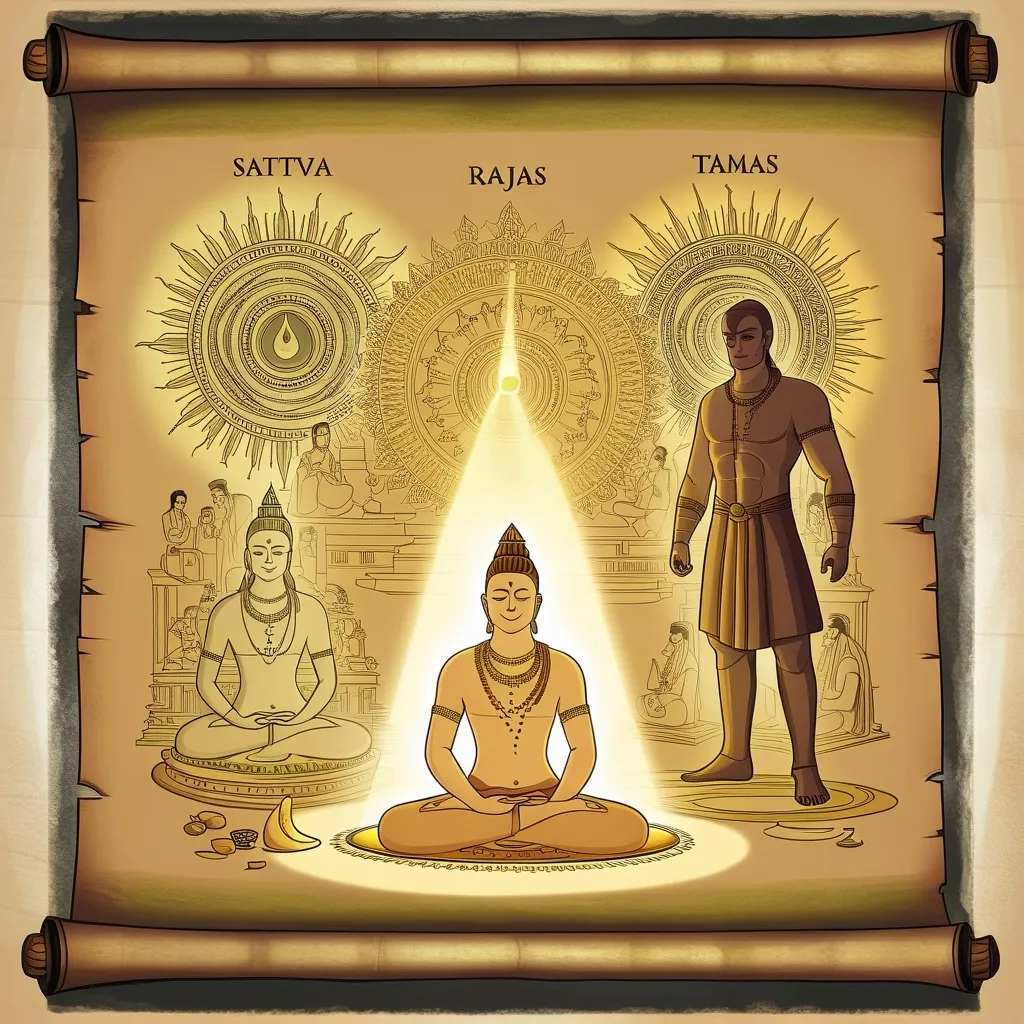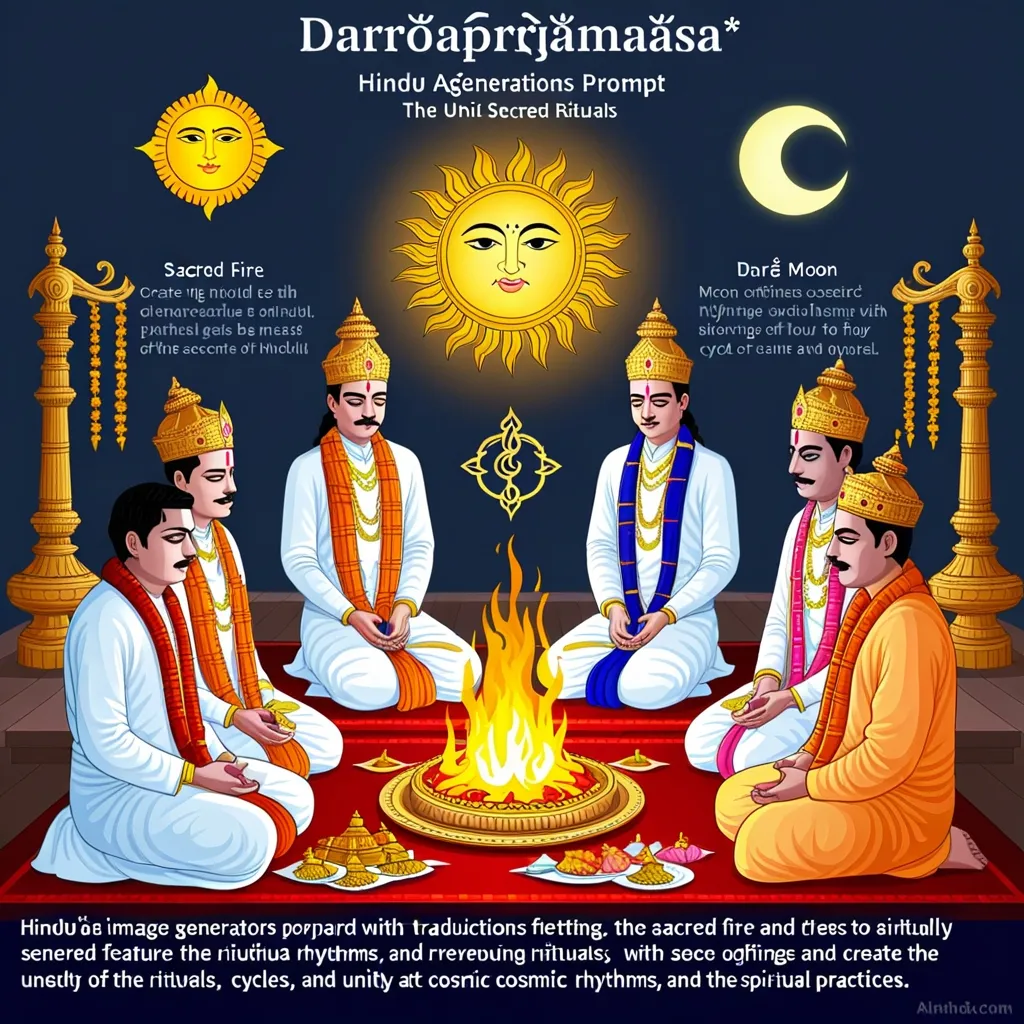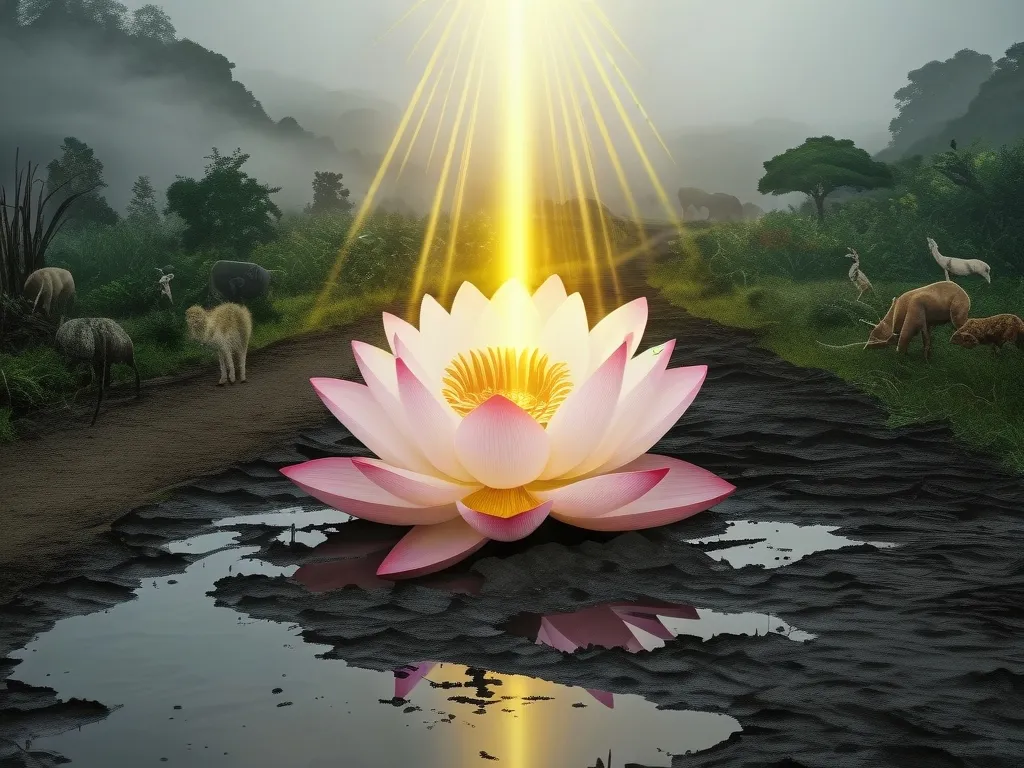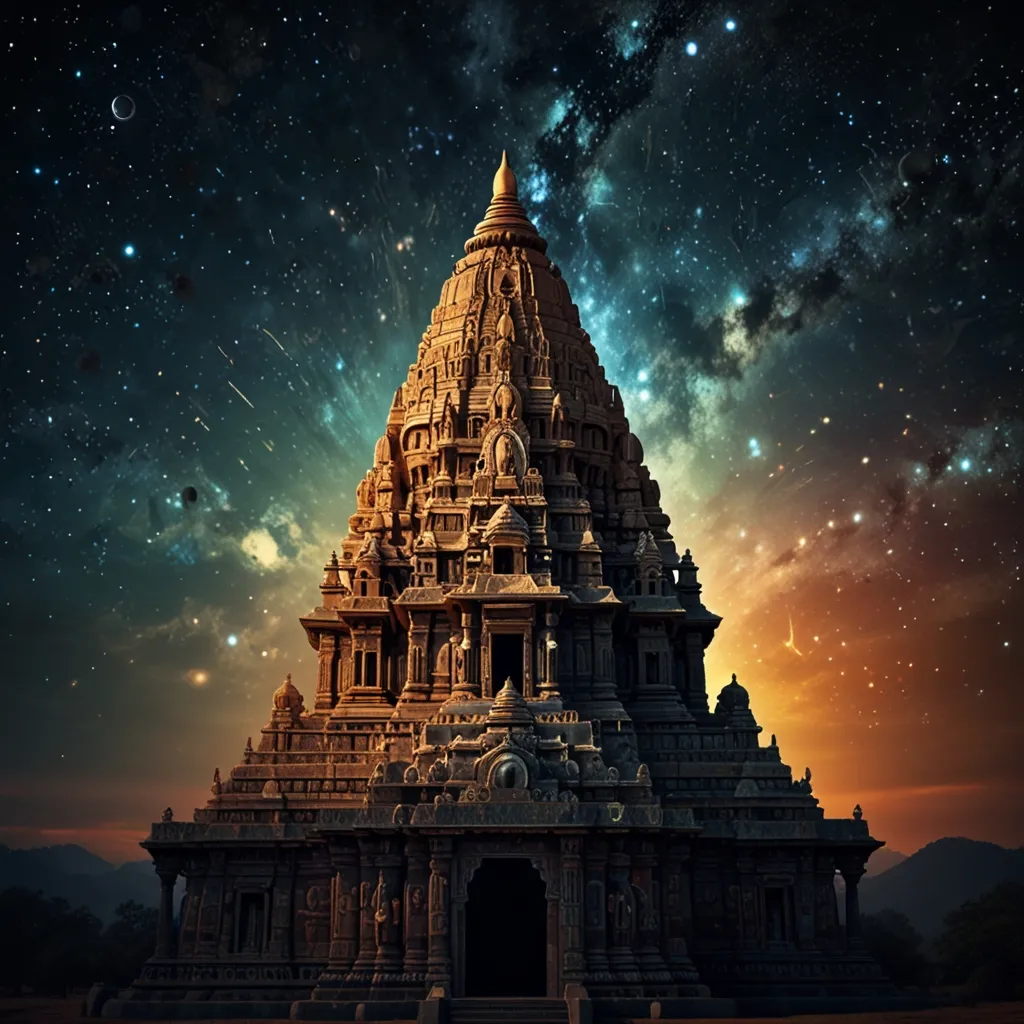In the rich tapestry of Hindu scriptures, there’s a profound reverence for Mother Earth, often referred to as “Bhumi” or “Prithvi.” This deep respect is beautifully captured in the “Bhumi Sukta,” a hymn dedicated to Earth, found in the Atharva Veda and other Vedic texts. This hymn isn’t just a poetic tribute but a deep spiritual and ecological reflection on our connection with the Earth.
In Hindu tradition, Earth is considered a living entity, a divine mother who nurtures and sustains all life. The Bhumi Sukta kicks off with a heartfelt salutation, acknowledging Earth as the source of all vitality and life. It even states, “This Earth is our Mother and we are all Her children,” emphasizing a deep familial bond between humans and the Earth. This highlights how deeply ingrained the idea of Earth as a nurturing force is in the culture.
The Earth is described as “Vasu-dhaa,” which means one who bears all elements and beings. She is seen as the universal mother, the provider of every kind of good, and the home for cattle, horses, and birds. The hymn goes on to praise her for her bounty, her healing powers, and her role in sustaining all forms of life. It’s a beautiful acknowledgment of all that Earth provides.
The ancient seers, or Vedic rishis who composed these hymns, had a profound understanding of the interconnectedness of all life. They saw Earth not just as a physical entity but as a living, breathing being that needs respect and care. The Bhumi Sukta reflects this awareness, urging humans to live harmoniously with nature. It even includes a prayer that says, “Oh, Mother Earth When we plow your body for cultivation, please let the plants grow well Let us not harm your vitality when we use you for our livelihood!“.
This ecological consciousness is a recurring theme in Vedic literature. The Rig Veda advises against cutting trees because they help remove pollution, and the Yajur Veda cautions against disrupting the sky and polluting the atmosphere. These ancient texts advocate for a lifestyle that minimizes harm to the environment, recognizing that human well-being is closely linked with the health of the Earth.
In Vedic culture, the relationship with Earth isn’t just theoretical; it’s woven into daily life through various rituals and practices. Before doing activities like plowing or digging, ancient people would offer prayers to the Earth to seek her permission and blessings. This practice underscores the belief that every action should be mindful of its impact on the environment.
There’s also the concept of “Bhuta runa” or debt to the elements and environment, which is significant. Hindus believe they owe a debt to the Earth and other elements, which must be repaid through respectful and sustainable living. This debt isn’t just financial, but also moral and spiritual, emphasizing the need for a balanced coexistence with nature.
The Earth is one of the five fundamental elements or “Pancha Mahabhutas” in Hindu cosmology: Prithvi (Earth), Agni (Fire), Jal (Water), Akash (Sky), and Vayu (Air). These elements are interconnected and interdependent, each playing a crucial role in nature’s balance. The Taittiriya Upanishad explains that these elements originate from Brahman, the ultimate reality, making them sacred and divine.
The reverence for Earth isn’t just confined to grand rituals; it’s integrated into daily life. Traditionally, Hindus greet the Earth before stepping onto it, offer prayers to the Sun at dawn, and thank God before eating and sleeping. These practices reflect a deep sense of gratitude and respect for the natural world. For instance, the Vishwamitra Smriti includes a prayer asking for forgiveness for touching the Earth with one’s feet, acknowledging the sacredness of every part of the divine mother.
In today’s world, with environmental degradation being a significant concern, the teachings of the Bhumi Sukta are more relevant than ever. The hymn’s emphasis on living in harmony with nature, respecting Earth’s bounty, and minimizing harm to the environment serves as a powerful reminder of our responsibilities toward the planet. As we navigate the challenges of climate change, pollution, and resource depletion, the ancient wisdom of the Vedic rishis offers a compelling vision for sustainable living.
The Bhumi Sukta is more than just a hymn; it’s a call to action, a reminder of our sacred duty to protect and preserve Earth. It underscores the importance of living in harmony with nature, respecting the interconnectedness of all life, and recognizing the divine in every element of the natural world. Reflecting on these ancient teachings invites us to adopt a lifestyle that honors Earth as our mother, ensuring a sustainable future for all her children.
